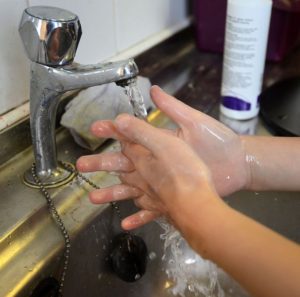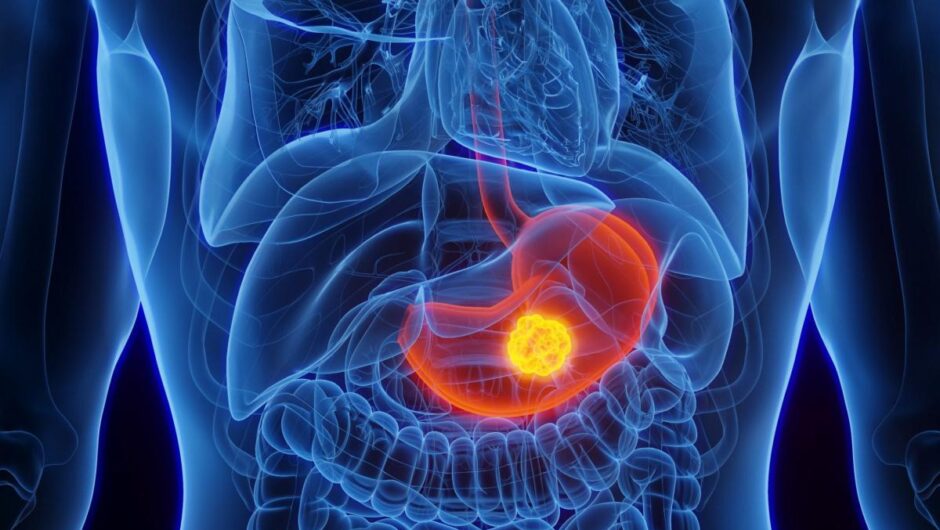[ad_1]
Here is a round-up of the latest news in response to the coronavirus pandemic on Wednesday, May 20.
Follow updates on the world coronavirus pandemic on our live blog and sign up for our email newsletter alerts by going here.
Confirmed worldwide cases: 4,988,994
Confirmed deaths: 324,958
Confirmed recoveries/discharges: 1,959,149.
In Wales, the number of people who have died after testing positive for coronavirus has reached 1,224 after 17 more deaths were announced on Tuesday.
Public Health Wales (PHW) also confirmed 166 more cases of Covid-19 to take the overall total since the outbreak began to 12,570.
A seven-year-old child is among the latest people who have died across the UK after testing positive for coronavirus.
The number of people who have died with lab-confirmed coronavirus in the UK has risen to 35,341, up by 545 from the same point on Monday.
Families might be able to meet outside
The Welsh Government is considering relaxing lockdown so families from different households can meet outdoors, the Health Minister has confirmed.
Speaking at Tuesday’s press conference in Cathays Park, Vaughan Gething said there was “developing evidence” to suggest that meeting people in outside spaces would carry a reduced risk of transmission.
Latest scientific advice from the Technical Advisory Cell (TAC) on May 12 states that Covid-19 was “very likely to decay very quickly [a few minutes] in air and on surfaces when exposed to sunlight”.
“This adds to the evidence that outdoor environments are highly likely to be a lower risk for transmission,” it adds.

(Image: WalesOnline/ Rob Browne)
Up to six people are now allowed to meet outside in Northern Ireland, and, in England, you can already meet one other person from outside your household outdoors.
“We are reviewing our rules on lockdown every three weeks as we are required to by the law that’s been introduced,” said Mr Gething.
“We will need to think about what that then means not just about being outside, but who you’re outside with and the level of contact you have.
“These are active considerations.”
BMA’s verdict on when schools should re-open
Schools should re-open “as soon as it is safe to do so”, the British Medical Association has said, despite ministers facing pressure to reconsider plans for some pupils to return to the classroom next month.
The BMA’s public health medicine committee chairman Dr Peter English said there was “growing evidence” that the risk to children from coronavirus is “extremely small” but said there is “no united view yet” on whether children can spread it.
Schools in England are due to start re-opening on June 1, but no date has been set in Wales. Education Minister Kirsty Williams is due to lead the Welsh Government’s daily briefing on Wednesday lunchtime, but First Minister Mark Drakeford has said it is his “ambition” to get Years 6, 10 and 12 back at some point before the summer break.
The doctors’ union previously said the Government should not consider reopening schools in England until the case numbers are “much lower”.
Writing in the Daily Telegraph, Dr English said: “The decision about when schools should be allowed to reopen is an extremely difficult one.
“We know that the longer children are kept away from the classroom, the greater the harm to their education, life opportunities and wellbeing.
“For disadvantaged children, this harm is even greater. A focus on arbitrary dates for schools to reopen is polarising.
“The BMA wants schools to re-open as soon as it is safe to do so and the evidence allows – this could be before June 1 or after. But a zero-risk approach is not possible. This is about ‘safe’ being an acceptable level of risk.”

Well done Sir Tom!
Second World War veteran and NHS fundraiser Captain Tom Moore is to be knighted, Downing Street has announced.
The 100-year-old raised almost £33 million for health service charities by walking laps of his Bedfordshire garden.
Prime Minister Boris Johnson described Sir Tom as a “true national treasure” and praised his “fantastic fundraising” which he said “provided us all with a beacon of light through the fog of coronavirus”.
Mr Johnson recommend Sir Tom be exceptionally honoured by the Queen, who has approved the honour, Number 10 said.
An investiture ceremony will take place at a later date.
His knighthood comes just weeks after he was made an honorary colonel to mark his centenary and fundraising efforts.
There’s often so much information to take in right now, it can be hard to know what to look out for.
So if you want to stay up to date with all the latest news from varying aspects of Welsh life, you can sign up to one of our newsletters as a simple way to keep on top of things.
You’ll receive a curated email, with all the important stories – and stories which interest you – in one place.
We send a range of newsletters each day – sometimes twice a day – on the latest news, up-to-the-minute stories and information on coronavirus as well as the latest Cardiff City, Swansea City, and Welsh rugby sports stories.
We also send out some newsletters on a weekly basis: for example our What’s On newsletter, or our In Case You Missed It email, helping you catch up with any stories you might have missed.
Tributes to Swansea nurse who has died
Tributes have been paid to a nurse at Singleton Hospital, Swansea, who has died after contracting coronavirus.
Swansea Bay University Health Board confirmed that Liz Spooner, a registered nurse at the hospital for 41 years, had died.
Ms Spooner has primarily worked at the coronary care unit of the hospital as well as ward nine.
The health board said her death has left a “massive hole in the Singleton Hospital family”.
Jan Worthing, the hospital’s director, said: “Liz has always given her all, delivering an excellent standard of care. She was well-known throughout Singleton as a fantastic, caring colleague with a dry sense of humour.
“Liz will be sorely missed by us all and leaves a massive hole in the Singleton Hospital family. Our thoughts are with Liz’s daughter Zoe and her family.”
First Minister on what the future holds for Wales
The man leading Wales’ coronavirus lockdown strategy has been talking to WalesOnline about what the future holds.
We asked Wales’ First Minister Mark Drakeford what our lives might look like in January next year, when people will be able to meet loved ones and how the past three months have been for him.
He gave us an insight into his thinking about lockdown and what the future for all of us holds, and you can read the full interview here.

Washing your hands does work
Handwashing six to 10 times a day is linked to a lower risk of seasonal coronavirus, supporting public health guidance around measures for the Covid-19 outbreak, research suggests.
Regular handwashing can reduce personal risk of getting an infection, a study which has not been peer-reviewed indicates.
Moderate-frequency handwashing was associated with a 36% reduction in the risk of coronavirus infection compared to those who washed their hands zero to five times per day.
For higher intensity handwashing there was no significant dose-response effect, the researchers say.
Sarah Beale, from University College London’s (UCL) Institute of Health Informatics, and first author on the study, said: “Given that Covid-19 appears to demonstrate similar transmission mechanisms to seasonal coronaviruses, these findings support clear public health messaging around the protective effects of handwashing during the pandemic.
“It’s important to highlight that frequency of handwashing is only one aspect of hand hygiene.
“We also know that both longer duration of handwashing and the context of handwashing e.g. upon returning home or before eating – have been associated with lower overall risk of influenza or influenza-like-illness.
“Good hand hygiene should be practised at all times regardless of whether you show symptoms or not.
“This will help protect yourself and prevent unwittingly spreading the virus to others around you.”
Study recommends rolling cycle of lockdowns
A rolling cycle of 50 days of strict lockdown measures followed by 30 days of easing of restrictions could be an “effective” approach for managing Covid-19 until there is a vaccine, research suggests.
This model would keep intensive care demand within capacity and “may allow populations and their national economies to ‘breathe’ at intervals”, according to a study published in the European Journal of Epidemiology.
There are currently no effective treatments for coronavirus and a vaccine that is widely available is likely to be at least a year away.
A continuous, three-month strategy of suppression measures, such as strict physical distancing and lockdown, would reduce new coronavirus cases to near zero in most countries, the study indicated.
Looser mitigation strategies such as hygiene rules and shielding of vulnerable groups would require approximately six-and-a-half months to reach the same point, according to the research.
But the study suggested that such prolonged lockdowns would be unsustainable in most countries due to the potential knock-on effects on the economy and livelihoods.
Rail passengers still waiting for season ticket refunds
One in three rail passengers who requested a season ticket refund due to the coronavirus pandemic are still waiting for a payout, a watchdog has claimed.
A Transport Focus survey indicated that 36% of claimants have not been told if they will receive a payout, while some travellers have been left waiting for at least six weeks to get their money back.
Fewer than half (49%) of passengers were satisfied with how their claim was handled, the poll suggested.
Transport Focus chief executive Anthony Smith said: “While the majority of passengers have received a refund, six weeks on from applying others are still out of pocket and in the dark.
Around 700 people were surveyed from May 6-13.
The coronavirus lockdown led to a surge in requests for season ticket refunds as many people started working from home.
Mr Smith said: “While the majority of passengers have received a refund, six weeks on from applying others are still out of pocket and in the dark.
“Operators must reassure passengers on how long they can expect their refund to take and when they can realistically expect to see the money back in their bank account.”
Gareth Thomas reveals the mental struggles during lockdown
Wales rugby legend Gareth Thomas has opened up on the psychological torment he has gone through during the coronavirus lockdown and revealed how he has ‘cried a lot.’
The former Wales captain, who also led the Lions during their 2005 tour to New Zealand, gave a candid description of his innermost feelings whilst appearing on the Jeremy Vine show.
Alfie, capped 100 times by Wales, revealed he was HIV positive last year and admits the words ‘virus’ and ‘disease’ have been triggers for him while the coronavirus crisis has dominated the news outlets.
[ad_2]



